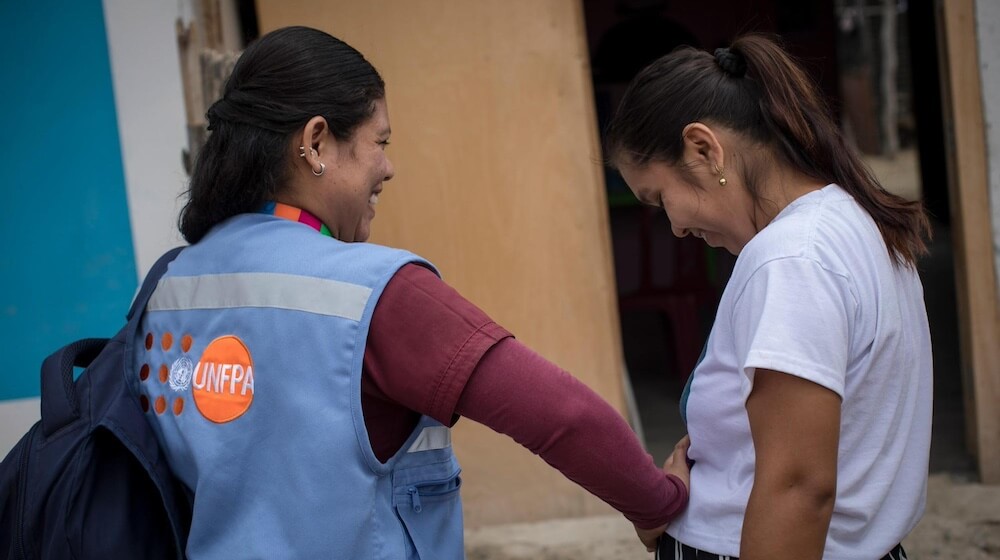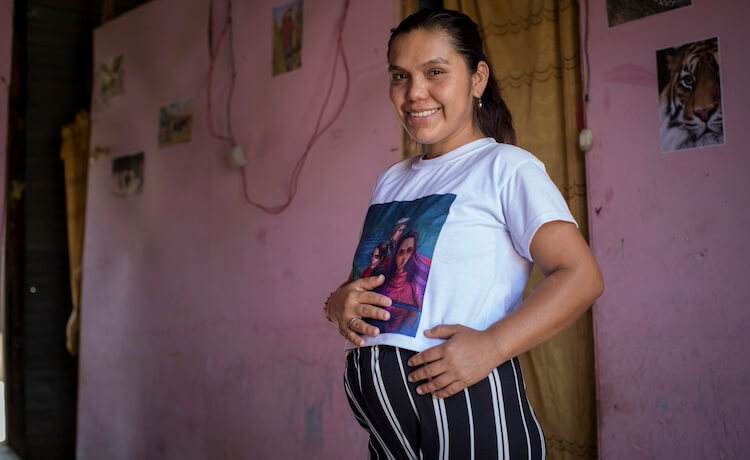UNFPA Midwives in Peru Serve Thousands of Pregnant Women

PIURA, Peru – In the first months of 2023, torrential rains flooded the streets of Peru’s northwestern Piura district. Floods interrupted city services and trapped people in their homes. For 30-year-old mother-of-two Miryam, it added another level of anxiety to her pregnancy.
Getting to check-ups became difficult. The dirt roads in her neighborhood were waterlogged, and there was no money for alternative transportation. Even worse, plagues of rats, flies, and mosquitoes arrived with the floods, and brought water-borne disease.
“We had to disinfect everything. But I still caught dengue fever,” Miryam told UNFPA.
Climate emergencies present particular dangers for women and girls. These emergencies often cut off access to essential sexual and reproductive health services, elevate the risk of violence, and heighten vulnerability to illness. During the flooding emergency in Piura, one out of 5 maternal deaths was associated with or caused by dengue.
Miryam had already been told that her pregnancy would require special attention because she had delivered her first two children via Caesarean section. Doctors warned a third surgery could be risky.
Still, she struggled to get the care she needed. That is, until she heard a knock at the door.

A life-saving initiative
Miryam’s visitor that day was a midwife serving as part of a group organized under the UNFPA-supported Saving Lives project, implemented together with local partner organization Prisma.
Thousands of women like Miryam were prevented from visiting health centers due to flooding. Economic issues and care-taking duties mounted, but the Saving Lives project brought care to their doors.
“I had no one to leave my children with because my husband was away working as a fisherman,” Miryam said. “The group told me they were coming to see me for my check-ups.”
Since May 2023, trained midwives have been visiting women like Miryam across the flood-affected regions of Piura, Tumbes, and Lambayeque. Members have been able to identify and support nearly 150 pregnant women with services like prenatal check-ups. Additionally, they’ve enabled more than 4,500 women to access sexual and reproductive health services.
“They go tirelessly door-to-door to provide sexual and reproductive health counselling and identify pregnant women. They haven’t given up,” said obstetric health coordinator Bertha Liñán, whose health center collaborates with the UNFPA-backed project.
“They helped us increase our staff numbers and reach places we couldn’t before.”
Checking up, changing lives
For Miryam, the care provided by the midwives has made a major difference in her pregnancy. She no longer feels endangered. “My life has changed a lot since they arrived,” she said.
Midwives save lives – and yet, the world has far too few of them. According to our research, nearly 1 million midwives are missing from the workforce, despite being able to meet about 90% of global need for essential sexual, reproductive, maternal, newborn, and adolescent health interventions.
After consulting with midwives in Peru, Miryam made the choice that she will not have any more children. “I made that decision with my husband as part of our family planning,” she said.